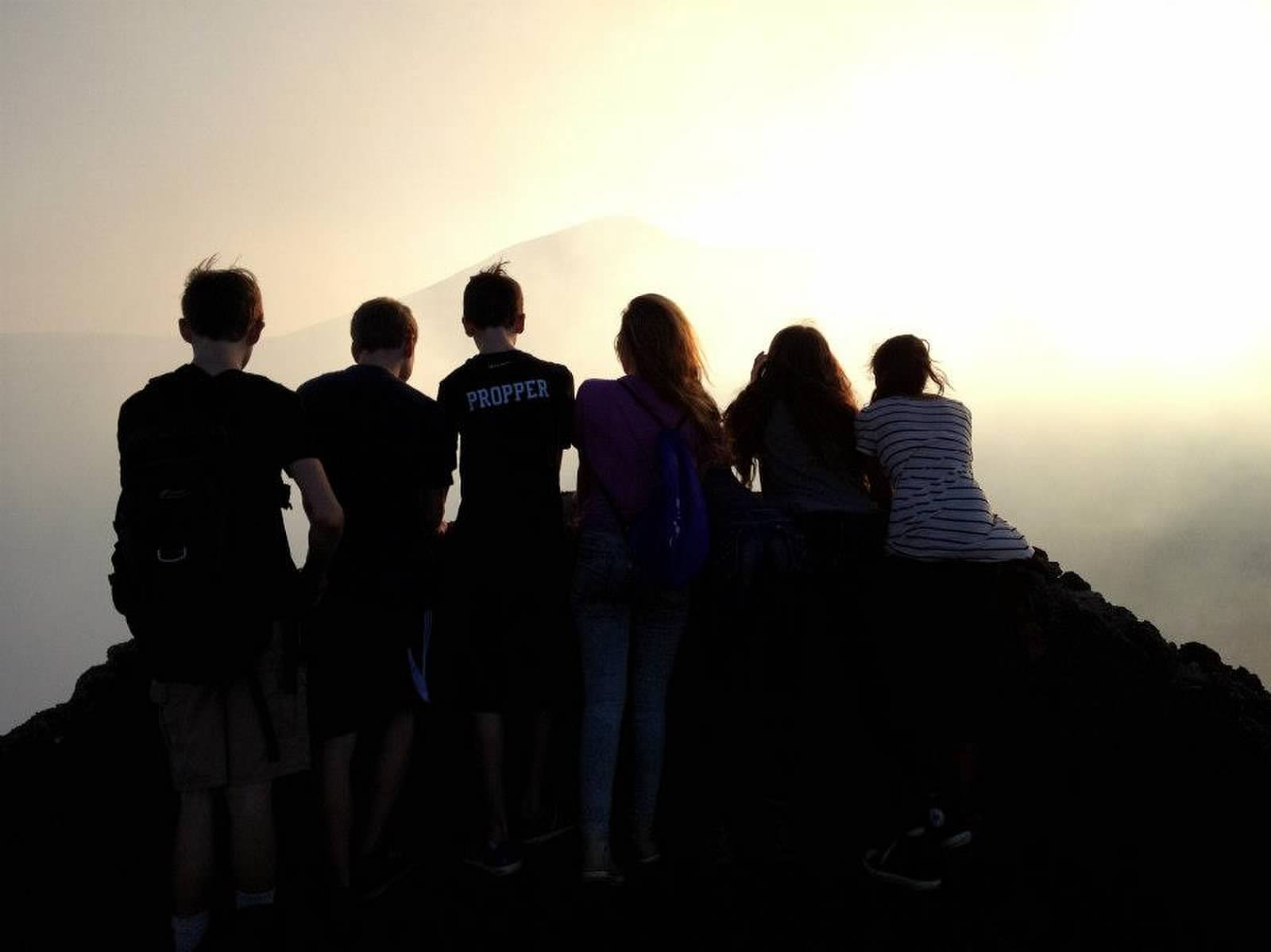 This June, board members and volunteers visited our sister city. This delegation took place during a difficult time - as Nicaraguans recognize that wealthy countries can’t provide the same levels of support due to the global economic crisis. The US nor the EU will fulfill their levels of aid to Nicaragua in 2009, and the Millennium Challenge Account created by G.W. Bush cancelled its remaining $60M amid allegations of fraud in local elections last fall. Money sent back to families by Nicaraguans who have emigrated north has also fallen dramatically.
We were impressed that upon arriving at the airport in Managua, all passengers were screened for swine flu with a thermal camera before being allowed in the country. Nicaragua also launched a major public health campaign to prevent the H1N1 virus from affecting its population, dispatching thousands of health brigadistas to educate people and detect any new cases. This theme of good organizing in the face of financial scarcity was repeated throughout our trip. With the help of community organizers, we saw these realities in Ciudadela San Martín when delivering much-needed school supplies. Next we visited the community water well to see their plan for new pipes to bring potable water for 120 additional families. We also looked at a location for a feeding center, as lay-offs at the free trade zones continue to idle employees as jobs leave for China.
This June, board members and volunteers visited our sister city. This delegation took place during a difficult time - as Nicaraguans recognize that wealthy countries can’t provide the same levels of support due to the global economic crisis. The US nor the EU will fulfill their levels of aid to Nicaragua in 2009, and the Millennium Challenge Account created by G.W. Bush cancelled its remaining $60M amid allegations of fraud in local elections last fall. Money sent back to families by Nicaraguans who have emigrated north has also fallen dramatically.
We were impressed that upon arriving at the airport in Managua, all passengers were screened for swine flu with a thermal camera before being allowed in the country. Nicaragua also launched a major public health campaign to prevent the H1N1 virus from affecting its population, dispatching thousands of health brigadistas to educate people and detect any new cases. This theme of good organizing in the face of financial scarcity was repeated throughout our trip. With the help of community organizers, we saw these realities in Ciudadela San Martín when delivering much-needed school supplies. Next we visited the community water well to see their plan for new pipes to bring potable water for 120 additional families. We also looked at a location for a feeding center, as lay-offs at the free trade zones continue to idle employees as jobs leave for China.
Mayor Cesar Vazquez and Vice mayor Ligia U. Santana informed us that Tipitapa continues to grow. Ligia took us to a new settlement Cristo Rey, where cardboard, plastic and aluminum sheets serve as new homes for the latest residents. We were glad to hear that all property titles in this community were only being given to women, but the good news ended here as Ligia informed us that with the swell of thousands of residents in less than a year, and no electricity, water, or social services, the risk of disease and crime is high. I asked if she thought that only a woman could pull this community together. She asserted, “women do this kind of hard work everyday around the world, and get nothing for it. Here we are giving them property for the hard work that is involved in keeping families together, especially in these impossible circumstances.”
The women of Nicaragua have become the beacon for change, and we were glad to hear this from the halls of the mayor's office to the communities women serve. The fight for most women is twice as tough – not only do they need to earn a living but they must also provide family care, and run a household. They are survivors of war, economic and sexual exploitation – yet they refuse to give in to despair. Instead, they teach us how to organize, to build health clinics, nutrition programs, schools and literacy campaigns. Women such as Rosa, a community organizer who helps over 200 children, and Lucia, a mother of 6, who built her own home and installed pipes to bring water to her family illustrate the power of women.
We left Nicaragua filled with hope but sobered by the increasing poverty we saw. We returned home ever committed to the struggle for health, nutrition, equality, and an end to economic injustice. Please join us in supporting these women and their strength in making this world a better place.






